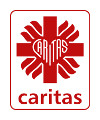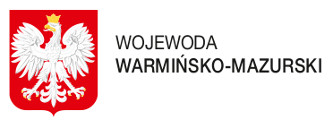Can I move around the Schengen zone on the basis of the permanent residence permit?
Yes. However, you have to remember that both permanent and temporary residence permits issued in Poland grant all foreigners the right to travel to Schengen countries for tourism and stay there for 3 months during the next 180 days. While travelling around the Schengen zone, you need to carry a valid residence permit, passport and health insurance at all times. Permanent and temporary residence permits issued in Poland does not allow the non-EU foreigner to work beyond the Polish borders.
What’s the difference between the permanent residence permit and the long-term resident permit?
The only difference between these two permits is the basis for issuing them. The permanent residence permit is for foreigners who can prove their Polish family ties, for example, are of Polish descent or have a Polish spouse. Other foreigners can apply for the long-term resident permit issued to foreigners staying in Poland due to employment, i.e. work. The long-term EU-resident card is issued for 5 years, and the permanent residence card for 10 years.
Do I have to submit another application for the long-term EU-resident card after the previous one becomes invalid?
No. The long-term EU-resident permit is issued for an indefinite period of time. The case is the same with the permanent residence permit. Both permits are issued for an indefinite period of time. However, the long-term EU-resident card is issued for the period of 5 years, and the permanent residence card for 10 years. Before that, you have to submit an application for issuing a new long-term EU-resident/permanent residence card instead of submitting another application for residence permit.
Is it possible to submit an application for the long-term EU residence permit if I’ve studied in Poland for the period of 5 years?
No. Only half of the duration of studies in Poland is taken into consideration. That’s why the period of 5 years is calculated into the period required to issue the long-term EU residence permit as 2 years and a half. Therefore, the basic condition of a 5-year stay in Poland is not fulfilled.
My residence card has expired and I have a biometric passport and I can use the visa-free stay. Do I have to leave Poland and then enter the territory of the Republic of Poland to start visa-free stay?
No. In order to start a stay in Poland under the visa-free regime, it is not necessary to leave Poland and then enter the territory of the Republic of Poland. A stay on the basis of visa-free travel starts on the next day after the expiry of the validity of the residence card. In the territory of the Republic of Poland, under visa-free regime it is possible to stay for 90 days within a period of 180 days.
Can I move around the entire Schengen Zone on the basis of visa-free travel?
Yes. Visa-free travel entitles the foreigner to travel not only to Poland but to all other countries within the Schengen Zone. The principle of total visa-free stay in the Schengen Zone for 90 days in a 180-day period applies.
I have a stamp in my passport confirming that I have applied for a stay. Can I leave the territory of Poland and return to my country on the basis of such a stamp?
Yes. The voivode’s stamp enables the foreigner to leave the territory of the Republic of Poland and enter the country of origin of the foreigner, but only if the country of citizenship of the foreigner has a border with Poland or if the foreigner has a direct air connection from Poland to the country of citizenship. However, on the basis of the voivode’s stamp in the passport, the foreigner is not allowed to return to Poland. Entering the territory of the Republic of Poland again will enable a visa or visa-free entry.
Can I travel within the Schengen Zone on the basis of the stamp in my passport confirming my application for stay?
No. A stamp in your passport does not entitle you to travel in the Zone. The voivode’s stamp in the passport is only a confirmation that the application for residence (temporary, permanent or long-term resident of the EU) has been submitted to the competent authority and does not contain any formal defects and the foreigner’s stay is legal until the end of the proceedings.
I already have a positive decision to grant a residence permit. Can I travel on this basis?
No. Such a decision is not an entitlement to travel abroad. A residence card and passport are required to cross the border. On the basis of a positive decision, a foreigner may only leave the territory of the Republic of Poland in order to enter the country of citizenship of the foreigner, provided that the country borders with Poland or has a direct air connection to it. However, in order to enter Poland again you need to have a visa or visa-free entr
What is the difference between an employment contract and a contract of mandate?
Employment contract gives you many rights that your employer cannot deprive you of. In particular, these are rights such as the right to paid holiday leave or sick leave. Termination of employment contract is connected with the necessity to observe certain deadlines from the day of the termination of the contract, which gives an employee, for example, enough time to find another job. For example, if an employee has worked for the employer for the period shorter than six months, the period of notice is two weeks, if at least for the period of six months, then the period of notice is one month. If the employee has worked for at least three years, the notice period is three months. Labour law also provides that the total period of employment under fixed-term employment contracts concluded between the same employee and employer may not exceed 33 months, and the total number of such contracts may not exceed three. If the total duration of a fixed-term contract or of another fourth fixed-term contract is exceeded, the contract shall be deemed to be of indefinite duration, which entails greater legal protection for the employee.
The legal situation of a person employed under a contract of employment is much more favourable than that of a person employed under a contract of mandate. An employee employed under a contract of mandate does not have the above rights. The contract of mandate is governed by other regulations, that is, those resulting from the Polish Civil Code, which, as a rule, do not provide for any rigours concerning the termination of the contract or paid holiday leaves. The order agreement may be concluded for any period of time and may be extended with no limitations.
Persons employed under a contract of mandate are covered by mandatory health insurance as a standard, which enables the use of public medical care. It is also possible to pay voluntary contributions for sickness insurance. If a person employed under a contract of mandate is registered for sickness insurance, they are entitled to obtain remuneration while being on sick leave (but only after 90 days of continuous payment of sickness insurance contributions). In order to be covered by a voluntary sickness insurance scheme, you must declare this to your employer before you sign your contract or during its term. Sickness insurance contributions are deducted from your monthly salary and amount to 2.45% of your salary.
I have changed my name, do I need to change my residence card?
Yes. A residence card is a document confirming the identity of a foreigner during his/her stay on the territory of the Republic of Poland and entitles the foreigner, together with a travel document, to multiple border crossings without the necessity of obtaining a visa. Therefore, all data on the residence card should be up-to-date and the change of data is connected with the necessity to exchange the residence card. The document contains such data as name(s) and surname of the foreigner. That is why the change of the name of the foreigner is connected with the obligation to exchange the residence card for a document containing the current name of its holder.
An application for exchange of a residence card must be made within 14 days after the grounds for exchange have arisen, that is, in this case after the change of surname, which is usually the case on the date of the marriage.
The residence card is exchanged or refused by a voivode competent for the foreigner’s place of residence. A residence card for a foreigner who has been granted a residence permit for humanitarian reasons shall be exchanged or refused by the commanding officer of the Border Guard division or the commanding officer of the Border Guard post competent for the foreigner’s place of residence.
I am staying in Poland under a residence card in connection with the work I have just lost. Do I have to inform the voivode about this fact?
Yes. A foreigner staying on the territory of the Republic of Poland on the basis of a temporary residence and work permit is obliged to notify in writing the voivode who granted the permit, within 15 working days, of the loss of employment in any of the entities entrusting the performance of work mentioned in the permit.
If the foreigner fulfils the above obligation, he or she may legally reside on the territory of Poland for a period of 30 days counted from the date of losing his/her job for the benefit of the entity that entrusts the performance of work mentioned in the permit. During this period, he or she should submit a new application for a residence card in accordance with the purpose of stay in Poland, e.g. related to work or family reunification. After submitting the application, the stay is legalised until the proceedings for issuing the residence card are legally finalised.
If the foreigner fails to notify about the loss of employment within the time limit specified above, the voivode will revoke the temporary residence permit.
When can I apply for a long-term resident’s EU card?
A foreigner residing in Poland may file an application for a long-term resident’s EU card if they simultaneously meet the following conditions:
- reside legally and continuously in Poland for at least 5 years,
- has a source of stable and regular income sufficient to cover their and their dependent family members costs of living dependent family members,
- have health insurance,
- have a proven knowledge of the Polish language.
Knowledge of the Polish language is confirmed by one of the three documents:
- a certificate of knowledge of the Polish language at the B1 level,
- a certificate of completion of a primary or secondary school or a higher education institution with Polish as the language of instruction,
- a certificate of completion of a school or college with Polish as the language of instruction abroad.



 Project “Support system for foreigners
Project “Support system for foreigners